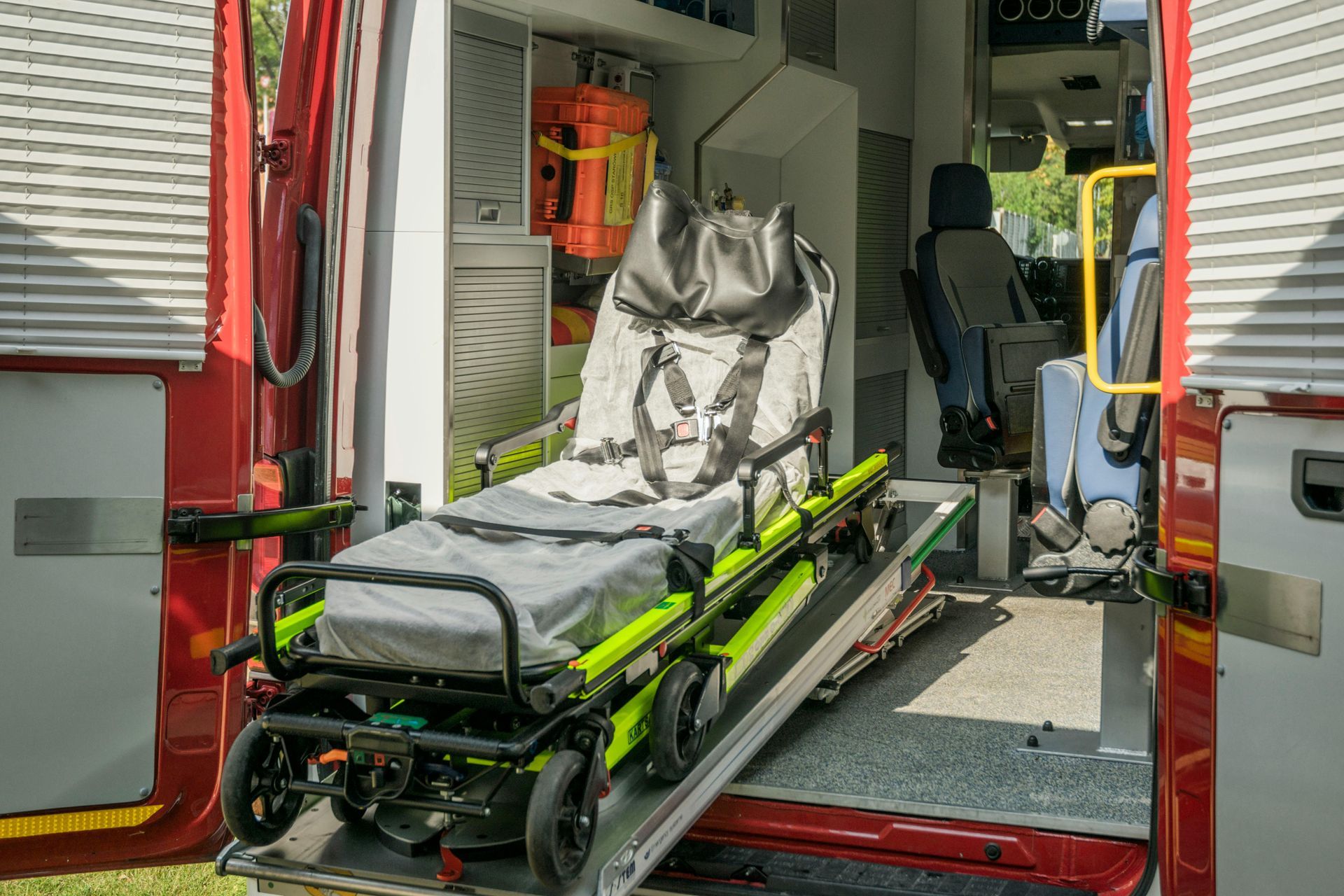Non-Emergency Patient Transport Services for Wheelchair, Stretcher, and Ambulatory Patients
In the realm of non-emergency patient transport, accessibility and flexibility are paramount. Recognizing the diverse needs of individuals requiring medical transportation, services catering to wheelchair, stretcher, and ambulatory patients have become indispensable. Whether navigating routine medical appointments, rehabilitative sessions, or specialized treatments, having a reliable transport service is crucial for maintaining continuity of care.
These services not only ensure safe and comfortable transportation but also alleviate the logistical burdens often associated with arranging travel for individuals with varying mobility levels. From accommodating specialized equipment to providing trained personnel capable of addressing unique patient requirements, non-emergency patient transport services play a vital role in facilitating seamless healthcare access for individuals across the spectrum of mobility needs.

Comprehensive Non-Emergency Patient Transport Services: Wheelchair, Stretcher, and Ambulatory Options
I. Introduction
A. Importance of Non-Emergency Patient Transport Services
Non-emergency patient transport services play a crucial role in the healthcare sector. They facilitate the movement of patients who require medical support but are not in a life-threatening condition. These services assure that these individuals receive the necessary care and attention while on transit, thereby ensuring their safety and well-being.
Non-emergency patient transport services are essential for patients who need to travel to non-urgent medical appointments or treatments. These services are specifically designed to cater to individuals who are unable to use regular vehicles or public transport due to their health conditions. By providing safe and reliable transportation, non-emergency patient transport services ensure that patients can access the care they need without any inconvenience or risk to their health.
B. Overview of Wheelchair, Stretcher, and Ambulance Transport Options
There are a variety of non-emergency transport options available to patients depending on their specific needs.
- Wheelchair Transport Services: These services are designed for individuals who are wheelchair-bound. Wheelchair transport vehicles are equipped with ramps or lifts to facilitate easy and safe boarding of the wheelchair. Trained professionals assist in securing the wheelchair and providing any necessary medical support during the journey.
- Stretcher Transport Services: Stretcher transport services are ideal for patients with limited mobility who require transportation while lying down. These services ensure that patients are comfortable and properly secured on a stretcher throughout the journey. Medical professionals are also present to provide any necessary medical assistance during transit.
- Ambulatory Transport Services: Ambulatory transport services are suitable for patients who can walk on their own but still require assistance due to their health condition. These services provide trained professionals who offer support and ensure the safety of the patient during transit.Majority of these services are used for surgical or procedure transportations.
By offering these different types of non-emergency patient transport services, healthcare providers can cater to the specific needs of each patient, ensuring their comfort and well-being throughout the journey.
II. Understanding Non-Emergency Patient Transport Services
A. Definition and Purpose
Non-emergency patient transport services are specifically designed to transport patients for non-urgent, planned appointments or treatments. The main purpose of these services is to provide safe, timely, and comfortable transportation for patients who are unable to use standard vehicles or public transport due to their health conditions.
These services prioritize the well-being of the patients and aim to ensure that they reach their destination without any complications. By using specialized vehicles and employing trained medical professionals, non-emergency patient transport services can cater to the unique needs of each patient, providing them with a reliable and comfortable mode of transportation.
B. Key Benefits for Patients and Caregivers
Non-emergency patient transport services offer numerous benefits to both patients and caregivers.
- Benefits for Patients:
- Safe and Comfortable Transport: These services prioritize the safety and comfort of the patients, ensuring that they are transported in a secure and comfortable manner. Specialized vehicles equipped with necessary medical equipment and trained professionals provide a sense of security and peace of mind to the patients.
- Reduced Risk of Complications: By using non-emergency patient transport services, patients can avoid the potential risks and complications that may arise during regular transportation. The trained medical professionals accompanying the patients can address any medical emergencies that may occur during the journey, minimizing the risk of health complications.
- Timely Access to Care: Non-emergency patient transport services ensure that patients reach their appointments or treatments on time. This timely access to care is essential for managing chronic conditions, receiving necessary therapies, and ensuring continuity of medical care.
2. Benefits for Caregivers:
- Convenience: Non-emergency patient transport services alleviate the burden on caregivers by providing professional transportation for the patients. This allows caregivers to focus on other important aspects of patient care, such as coordinating appointments, managing medications, and providing emotional support.
- Reduced Physical Strain: Transporting patients with limited mobility or those requiring specialized medical equipment can be physically demanding for caregivers. Non-emergency patient transport services eliminate the physical strain on caregivers, enabling them to preserve their energy and well-being.
C. Different Types of Non-Emergency Patient Transport Services
To cater to the diverse needs of patients, there are several types of non-emergency patient transport services available.
- Wheelchair Transport Services: These services are specifically designed for individuals who rely on wheelchairs for mobility. Wheelchair transport vehicles are equipped with features like ramps or lifts, ensuring easy and safe boarding of the wheelchair. Trained professionals assist in securing the wheelchair and providing any necessary medical support during the journey.
- Stretcher Transport Services: Stretcher transport services are ideal for patients who require transportation while in a lying-down position. These services ensure that patients are comfortable and properly secured on a stretcher throughout the journey. Medical professionals are present to provide any necessary medical assistance during transit.
- Ambulatory Transport Services: Ambulatory transport services cater to patients who can walk on their own but still require assistance due to their health condition. Trained professionals offer support and ensure the safety of the patient during transit.
These different types of non-emergency patient transport services are tailored to meet the unique needs of patients, ensuring their safety, comfort, and timely access to medical care.
FAQ
Q1: What are non-emergency patient transport services?
Non-emergency patient transport services are specifically designed to transport patients for non-urgent, planned appointments or treatments. These services prioritize the well-being of the patients and aim to ensure that they reach their destination without any complications.
Q2: What are the benefits of non-emergency patient transport services for patients?
The benefits of non-emergency patient transport services for patients include:
- Safe and comfortable transport
- Reduced risk of complications
- Timely access to care
Q3: What are the benefits of non-emergency patient transport services for caregivers?
The benefits of non-emergency patient transport services for caregivers include:
- Convenience
- Reduced physical strain
Q4: What are the different types of non-emergency patient transport services available?
The different types of non-emergency patient transport services available include:
- Wheelchair Transport Services
- Stretcher Transport Services
- Ambulatory Transport Services






